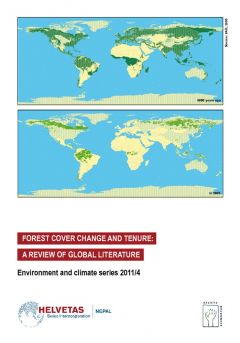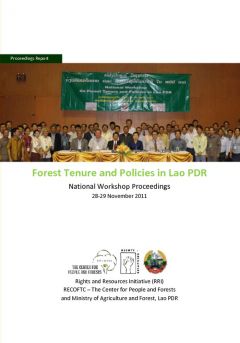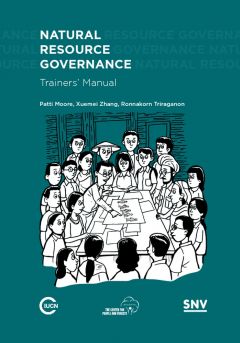Location
RECOFTC
RECOFTC is derived from an abbreviated form of the organization's legal name, Regional Community Forestry Training Center for Asia and the Pacific. Formerly the organization was known as RECOFTC – The Center for People and Forests.
RECOFTC – The Center for People and Forests is an international not-for-profit organization that focuses on capacity building for community forestry in the Asia Pacific region. It advocates for the increased involvement of local communities living in and around forests - some 450 million people in Asia-Pacific - in the equitable and ecologically sustainable management of forest landscapes.
The Regional Community Forestry Training Center for Asia and the Pacific (RECOFTC) opened in Bangkok, Thailand, in March 1987 with support from the United Nations Food and Agriculture Organization, the Government of Switzerland (through the Asian Development Bank), and Thailand's Kasetsart University.
Community forestry is widely acknowledged as a powerful solution for many of the challenges facing local people and the wider society, especially in improving rural livelihoods, enhancing community governance and empowerment, transforming forest-related conflict, protecting and enhancing the environment, and helping to fight climate change. As a capacity-building organisation, RECOFTC improves the ability of people and organisations to conduct community forestry effectively and sustainably.
RECOFTC works toward its mission through four thematic areas:
- expanding community forestry
- people, forests and climate change
- transforming forest conflict
- securing local livelihoods.
Members:
Resources
Displaying 336 - 340 of 485Divers Paths to Justice: Legal pluralism and the rights of indigenous peoples in Southeast Asia
This publication reveals that the majority of Southeast Asian countries already have plural legal systems, and to some extent custom is recognised as a source of rights in the legal framework of a number of them. National and international courts have affirmed indigenous peoples’ customary rights in land. And all these countries have endorsed and ratified key international human rights laws and treaties-- thus, the basis for securing indigenous peoples’ rights through a revalidation of customary law exists.
Forest Cover Change and Tenure: A Review of Global Literature
In the REDD+ era, the issue of forest tenure has shot to the top of international forest policy agendas. Even beyond the issue of 'REDD readiness,' there is much debate on the role of tenure in other outcomes of sustainable forest management, in particular livelihoods and forest conservation. This literature review focuses on the latter concern and aims to provide a brief overview of the international literature on the question of the relationship between forest tenure and forest cover change.
Forest Tenure and Policies in Lao PDR, National Workshop Proceedings
The workshop was attended by 89 participants representing government agencies, national assembly, civil society groups, and international organizations working in Lao PDR. In order to share experience of reforming forest tenure from other countries, resource persons were also invited from China, Nepal, Brazil and Vietnam.The key objective of the workshop was to continue the process of learning on forest land tenure reform from various countries, review and reflect on the current states of forest tenure in Lao PDR, and work out on pathways to forest tenure change.
Two Decades of Community Forestry in Nepal: What Have We Learned?
Development projects conceived now are rarely expected to have a life of more than five years, perhaps ten years at most. Looking back over more than twenty years of project experience in community forestry - itself grounded on an integrated development project of a similar time span - is thus a rare opportunity. The project has sought to promote social change in favor of the poor and disadvantaged, and it was recognized both by those involved in the project and by independent evaluators that this is not rapidly achieved
Natural Resource Governance Trainer's Manual
Governance is the keystone of sound natural resource management. Its core principles - accountability, transparency, participation, and the rule of law - are at the heart of the efforts being made at local, national, bilateral and multilateral levels to ensure that decisions that affect natural resources and resource users are well-informed and implemented equitably. There is a real need for all those who are involved in making and implementing decisions to understand the basic concepts and principles of governance and be able to apply them in their daily work.






